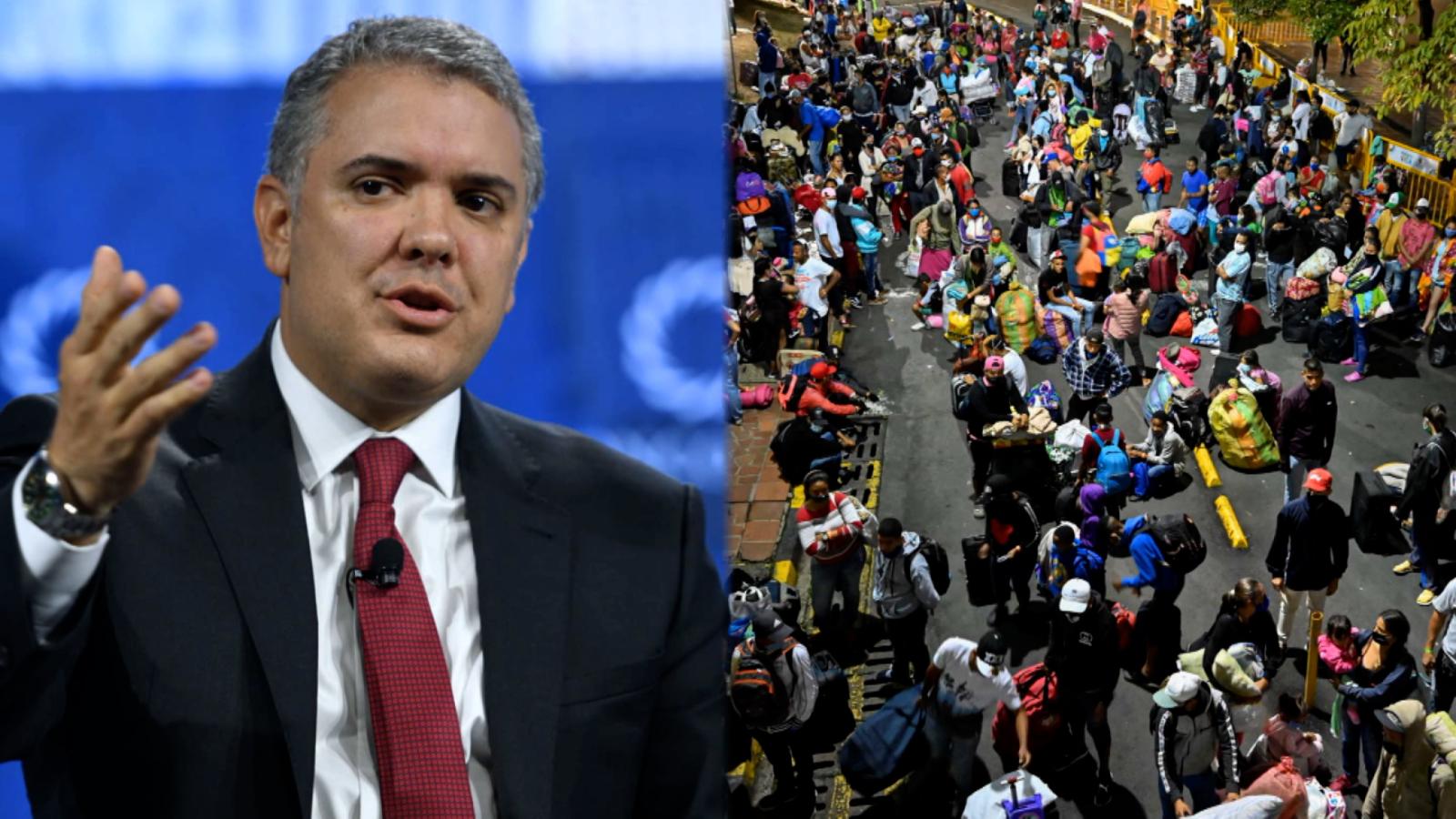The president of Colombia, Iván Duque, explained this Wednesday in an interview with Globe Live Media on what the Temporary Protection Statute consists of, which would shelter around one million Venezuelan migrants who are currently in Colombian territory in irregular situation.
The president said that currently in Colombia there are approximately 1.8 million migrants, of which only about 800,000 are regularized.
The other million, who are already in Colombia, said Duque, “are in very precarious conditions: they don’t have the possibility of opening a bank account, they don’t have the possibility of going to the health system on a regular basis because they have to enter through the emergency service, they do not have the possibility of formally joining the labor force and therefore also end up abused or hired in inferior conditions compared to Colombian workers.
“We could not continue with the situation as it is,” said Duque.
How does temporary protected status work?
“Before a million people who do not know where they are, what their names are, or what socioeconomic situation they have, we had to make a clear decision,” said the president.
“That is why this temporary protection status is created that forces those who are not regularized to regularize, to leave their name, surname, fingerprints, to leave a biometric record,” he explained.
With this new status, Venezuelan migrants will be able to “open a bank account, formally join the labor system,” which he defined as “measures that are fraternal, solidarity, modern immigration policy, with technology, and above all also inviting to a great contest of the international community ”.
How long will it take?
The president of Colombia affirmed that this process “does not happen overnight, we have given a period of two years so that people can go through the regularization process and be left with a finalized process of a single registry of migrants.”
In this way, he says, the country shows “the world that when xenophobia, rejection, denial have prevailed in many places in the face of migration, we can be a rich country.”
Regularization amid the pandemic
When Fernando del Rincón asked him about the vaccination of Venezuelan migrants against COVID-19, Duque replied that “you cannot vaccinate someone who does not know who they are, or what preexistence they have,” and that “the regularization process has that purpose. ».
The president explained that migrants who are in an irregular situation access the health system through emergencies, which increases the costs of the Colombian health system.
Then he said that “being able to do it now under regularization is also a cost-benefit relationship, fiscal for the nation, but also from a medical and humanitarian point of view.”
End unfair labor competition
When asked about possible criticism that these regularized Venezuelans could take away jobs from Colombians, the president responded that the migrants “are already in Colombia,” on average for about 7 months, or even years.
“In terms of work, today it is worse, because many people irregularly link these migrants and pay them in much more serious conditions, in an abusive way, without having to pay them what they would have to pay to legal Colombian work”, affirmed the president.
“With the registration they have to hire them under the same working conditions as a Colombian citizen,” Duque said, for which “unfair labor competition is terminated.”
Confronting networks of corruption and crime
The president also stated in his interview in Conclusions that some migrants who had not been regularized “ended up linked to corruption networks to obtain identification documents in the country.”
“Many of them were also pressured to enter those networks and then try to orient them politically,” he said. “This decision kills that: they are regularized, they have a single migration registry, they can participate in Colombian life, but they do not have the right to vote.”
In addition, Duque spoke in Conclusions about how the new protection status benefits Colombian justice.
“From the point of view of national security, we have seen that there are migrants who end up linked to crime networks. They are captured and there is no record, there is no name, there is no last name, there is nothing and the judges end up having to release them,” said the president.
And he added that “today, with the registration, whoever transgresses Colombian law will be sanctioned by Colombian law with the laws that our country has, without having to apply a deportation process.”
President Iván Duque said that the decision to implement the Temporary Protection Statute has been accompanied by the United States, Europe, Japan, Spain, the High Commissioner for Refugees and the UN.
But he also called for addressing not only the problem but also the cause of the situation, which he referred to as “the worst migratory and humanitarian crisis that Latin America has seen in its recent history.”

